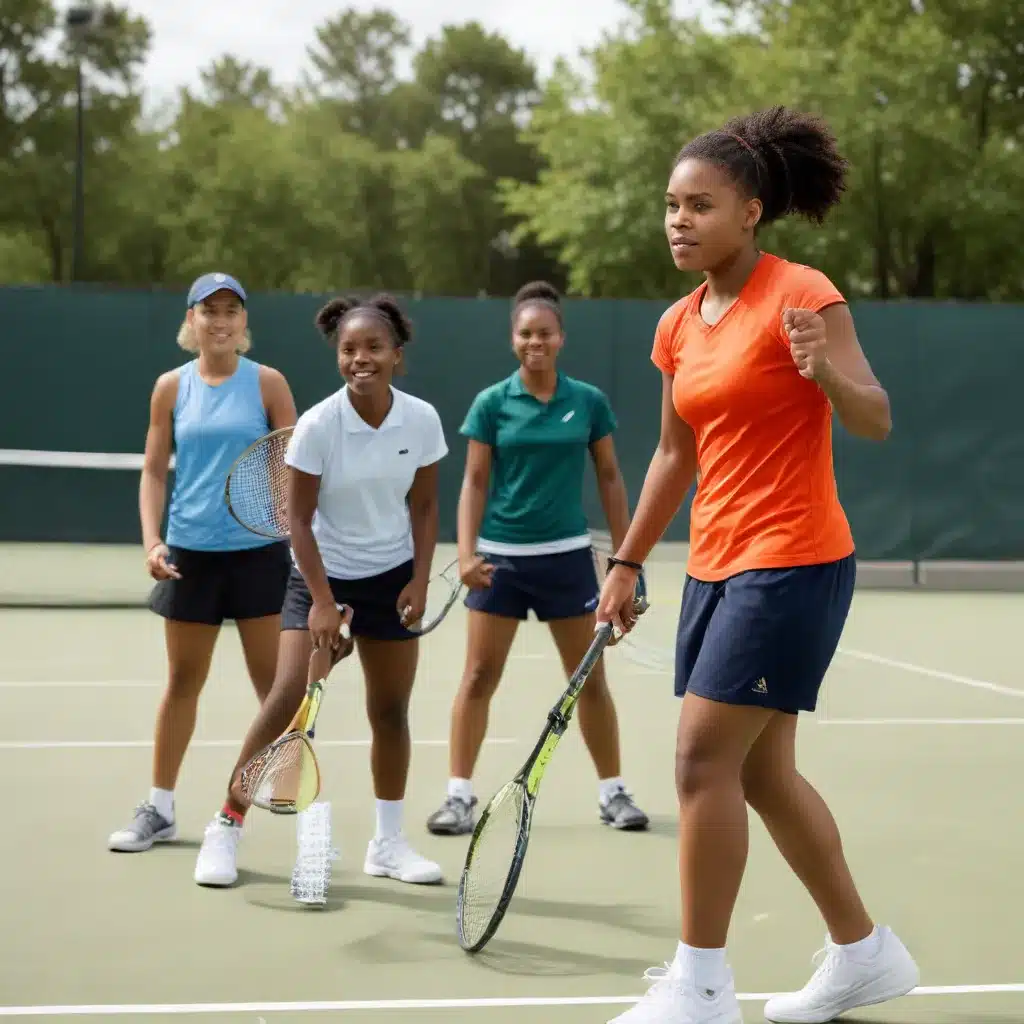
Upholding Regulatory Standards in London’s Tennis Landscape
In the vibrant city of London, where the rhythmic thwack of tennis balls echoes across well-maintained courts, fostering inclusive and accessible tennis environments has become a crucial priority for coaches, trainers, and event organizers. As the sport continues to captivate and inspire players of all backgrounds, it is essential to ensure that local regulations, best practices, and cost considerations are meticulously addressed to create a level playing field and promote diversity and equity.
The local authorities in London have implemented a comprehensive set of regulations to safeguard the rights and wellbeing of individuals participating in tennis activities. These regulations mandate that all tennis facilities, training programs, and events must adhere to strict accessibility standards, ensuring that individuals with varying physical abilities can fully engage with the sport. This includes the provision of wheelchair-friendly courts, specialized equipment, and dedicated coaching support to cater to the needs of players with disabilities.
Moreover, the local regulations emphasize the importance of inclusivity, prohibiting any form of discrimination based on factors such as race, gender, or socioeconomic status. Tennis coaches and trainers must undergo extensive training on diversity, equity, and inclusion to ensure that their practices and interactions with players are welcoming and supportive of individuals from all walks of life. Event organizers are also required to implement inclusive ticketing policies, accessible venue designs, and targeted outreach efforts to attract a diverse audience.
Innovative Player Development Strategies
Cliff Richard Tennis, a leading provider of tennis coaching and training programs in London, has been at the forefront of innovative player development strategies that prioritize accessibility and inclusivity. Their approach emphasizes the importance of personalized coaching, tailored to the unique needs and goals of each individual player.
One of the key pillars of their player development model is the incorporation of adaptive training techniques. These methods, designed in collaboration with sports therapists and disability advocates, ensure that players with physical limitations or unique requirements can participate in training sessions seamlessly. This might involve the use of specialized grips, adjustable court layouts, or assistive technologies that enable players to refine their skills and achieve their full potential.
Additionally, Cliff Richard Tennis has invested heavily in the professional development of their coaching staff, equipping them with the knowledge and skills to create inclusive learning environments. Coaches undergo regular training on topics such as cultural awareness, unconscious bias, and inclusive communication strategies. This empowers them to foster a sense of belonging and support among players from diverse backgrounds, ultimately enhancing the overall tennis experience.
Embracing Advancements in Tennis Technology
The tennis industry in London has also embraced the power of technology to enhance the inclusivity and accessibility of the sport. From innovative court sensors to smart-enabled rackets, the latest advancements in tennis technology have the potential to revolutionize the way players of all abilities engage with the game.
One such technology is the integration of court sensors that can detect and track the movement of players with physical limitations. These sensors, when coupled with adaptive coaching software, provide real-time feedback and personalized training recommendations to help players improve their skills and overcome specific challenges.
Similarly, the emergence of smart-enabled rackets has opened up new avenues for players to receive tailored guidance and support. These rackets, equipped with sensors and connected to mobile applications, can provide instant feedback on swing mechanics, ball impact, and court positioning. This data-driven approach enables players of all levels to refine their technique and develop a deeper understanding of the game, regardless of their physical capabilities.
The cost of accessing these advanced technologies can vary, but Cliff Richard Tennis has made a concerted effort to keep their offerings affordable and accessible to a wide range of players. By negotiating bulk discounts with technology providers and offering equipment rental programs, they ensure that the latest innovations in tennis technology remain within reach for players from diverse socioeconomic backgrounds.
Fostering a Thriving Tennis Community in London
The commitment to inclusive and accessible tennis environments in London extends beyond the realm of regulations and technological advancements. Leading tennis organizations, such as Cliff Richard Tennis, have also prioritized the cultivation of a vibrant and supportive community that celebrates diversity and equity.
One of the key initiatives spearheaded by Cliff Richard Tennis is the establishment of specialized training programs and clinics targeted at underrepresented groups. These events provide a safe and welcoming space for individuals from diverse backgrounds to come together, learn from experienced coaches, and build a sense of belonging within the tennis community.
Furthermore, Cliff Richard Tennis actively collaborates with local community organizations, schools, and youth centers to introduce the sport of tennis to individuals who may have limited exposure or access. Through these outreach efforts, they aim to break down barriers, spark interest, and foster a love for the game among populations that have traditionally been underserved.
The financial accessibility of tennis in London is also a crucial consideration. Cliff Richard Tennis offers a range of affordable coaching packages, equipment rental schemes, and scholarship programs to ensure that the sport remains within reach for players from all socioeconomic backgrounds. By addressing the cost factor, they actively encourage participation and promote the long-term sustainability of an inclusive tennis community.
Cultivating a Future of Inclusivity and Equity
As the tennis landscape in London continues to evolve, the commitment to fostering inclusive and accessible environments remains steadfast. Local authorities, tennis organizations, and the broader community must work in tandem to uphold regulatory standards, implement innovative player development strategies, and embrace the transformative power of technology.
By prioritizing diversity and equity, the tennis community in London is poised to become a shining example of how the sport can be a unifying force, transcending boundaries and empowering individuals from all walks of life. Through this collective effort, the future of tennis in the city holds the promise of a vibrant, inclusive, and accessible landscape that celebrates the unique talents and aspirations of every player.

